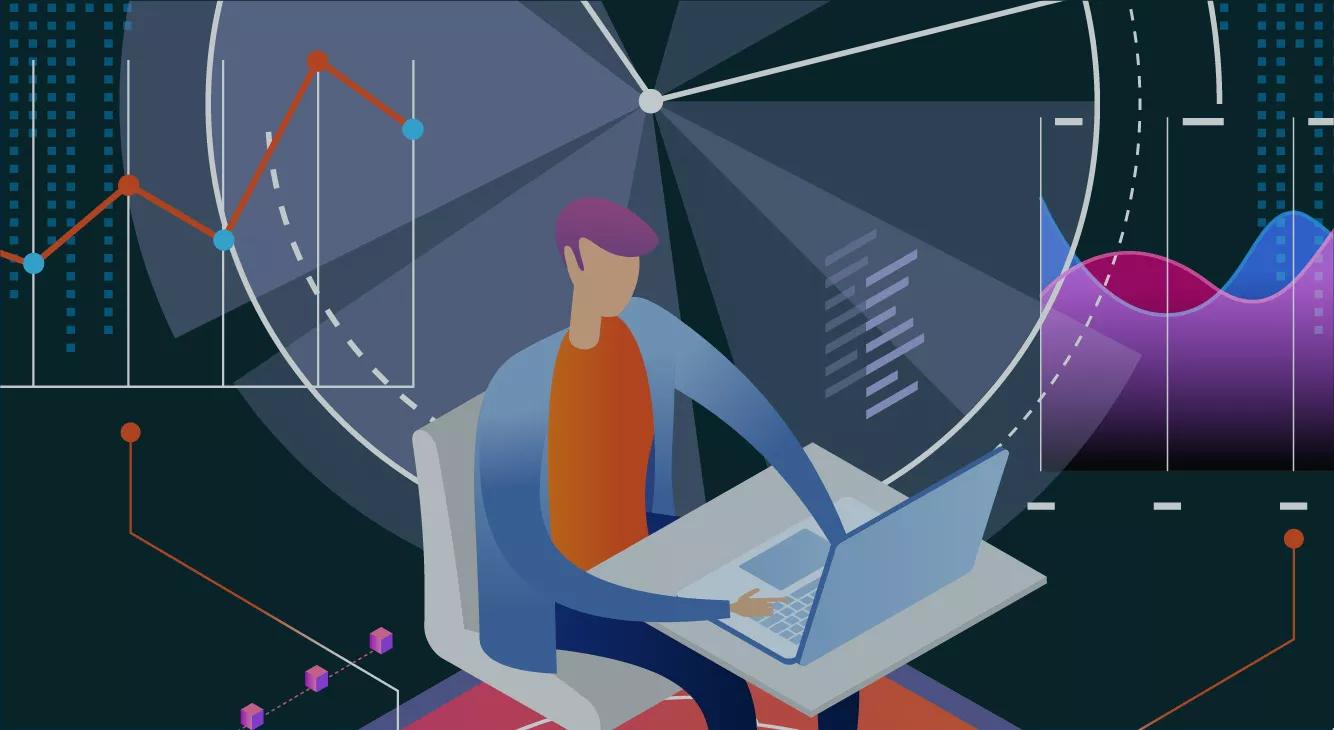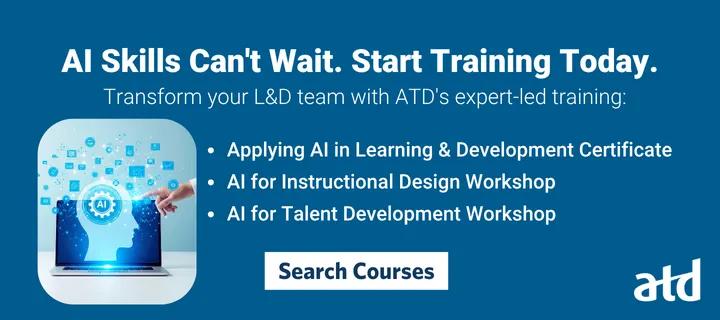ATD Blog
The Future of Leadership Is Personalized, On-Demand, and AI-Powered
By leveraging AI-driven tools alongside traditional coaching, organizations can make leadership development more scalable, effective, and data-informed.
Tue Jun 03 2025

Artificial intelligence (AI) is not just changing the way we work—it’s reshaping how we grow as leaders. While many organizations still view AI as a tool for quick fixes, such as automating tasks or gathering feedback, visionary companies are embedding it into their core leadership development strategies. The results speak for themselves: higher productivity, reduced turnover, and more engaged, future-ready leaders.
With millennials and Gen Z demanding personalized, on-demand growth opportunities, the question has shifted from whether AI should play a role in leadership development to how it can drive meaningful transformation. Is your organization using AI as a simple checkbox, or as a catalyst for turning learning into lasting leadership excellence?
Is AI Supporting Your Leaders or Driving Their Development?
Let’s start with this critical question. Does AI merely support your leadership development or is it integrated throughout your leadership strategy?
In many companies, AI is still seen as just a tool used to automate a task or deliver quick feedback. AI can serve this role very well, but with this approach, AI’s true potential is left on the table. Why?
This approach uses AI reactively and siloed. It may be used to construct a presentation or generate a quick report, but this tool-based approach only includes short-term improvements, surface-level engagement, and limited behavior change. And when everyone has the same tool, there’s no competitive edge. Tools don’t differentiate you; strategy does.
However, when AI is seen as a foundational layer of your leadership development strategy, it can do so much more. It becomes the engine that shapes your program, diagnoses growth needs, reinforces key behaviors, and provides rich insights to both L&D teams and coaches.
This is where AI shifts from being a helpful tool to an integral part of your development strategy by enabling scalable personalization, continuous reinforcement, and data-driven growth aligned to real business goals.
The Leadership Flywheel: From Insights to Impact
You’ve probably heard the term flywheel in business, which was popularized by Jim Collins in his book, Good to Great, and has been embraced by companies like Amazon. But what exactly does it mean?
A flywheel is a heavy wheel that builds momentum over time. It takes effort to get it moving. But with each turn, it stores more energy until it eventually spins almost effortlessly, generating increasing impact with less input.
In learning and development, this serves as a powerful metaphor for the desired outcome: sustainable and scalable behavior change in learners.
As a result, at The Institute for Management Studies (IMS), we have designed our learning ecosystem as a flywheel. We don’t believe in a one-and-done event but a continuous, self-reinforcing process where every element strengthens the next.
Here’s how it works:
Expert-led programs ignite insight and deliver actionable tools.
AI-powered reinforcement keeps the learning alive and nudges leaders in the workflow, prompting behavior change and providing real-time guidance.
AI-driven practice tools help leaders refine skills, build confidence, and prepare for high-stakes moments.
Human coaching brings strategic depth and personalized support, enhanced by AI-generated insights.
Each component adds energy and reinforces each other; we move leaders from knowing to doing to becoming. That’s the power of the IMS Flywheel—it doesn’t just deliver learning; it builds lasting momentum for leadership transformation.
This blended approach is already driving engagement and results, with leaders attending IMS programs and more than 55 percent of IMS learners surveyed reporting applying new skills within 30 days.
Choosing the Right AI Coaching Tool: What Matters Most
For organizations looking to integrate AI into leadership coaching, it is essential to evaluate tools based on these criteria:
Privacy and ethical standards: Organizations must safeguard data security and ensure the ethical use of AI.
Customization and adaptability: Effective AI coaching solutions need to tailor their approach to meet individual and organizational needs.
Measurable impact: AI-powered coaching should deliver measurable outcomes and a clear return on investment.
By leveraging AI-driven tools alongside traditional coaching, organizations can make leadership development more scalable, effective, and data-informed.

